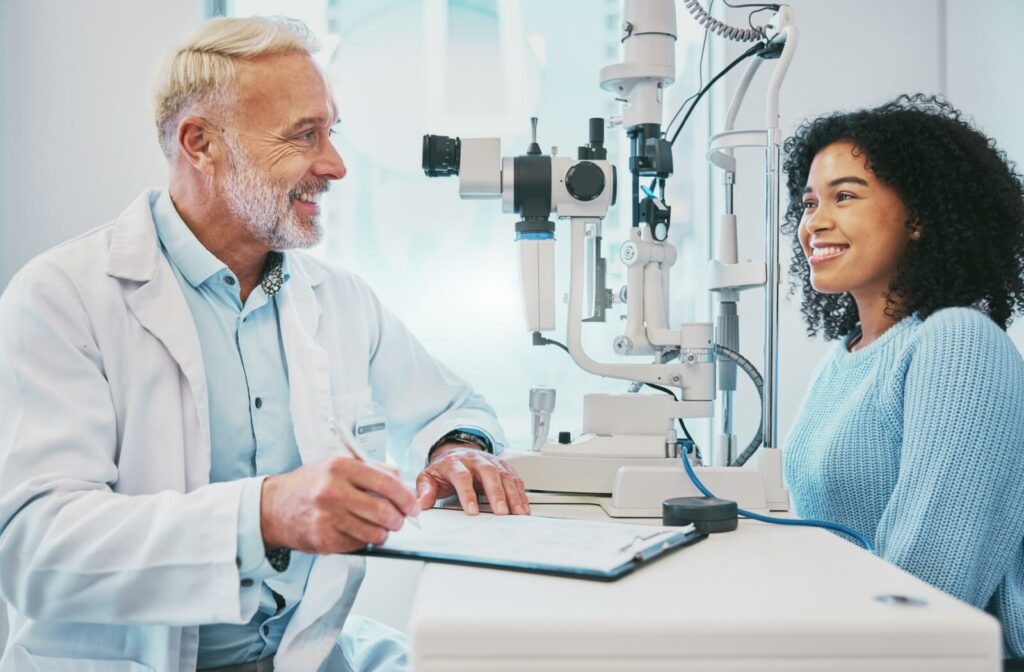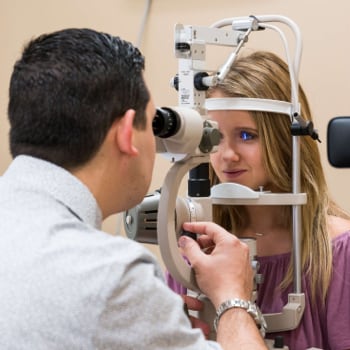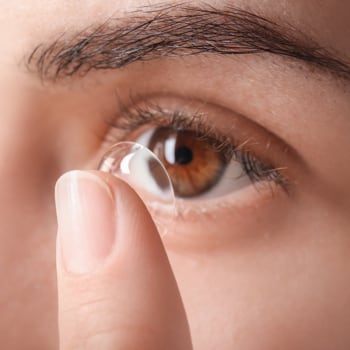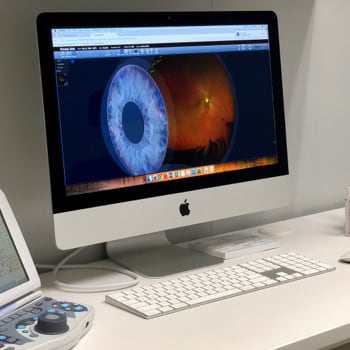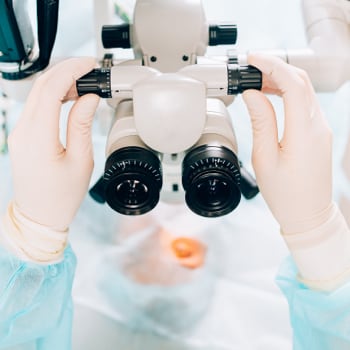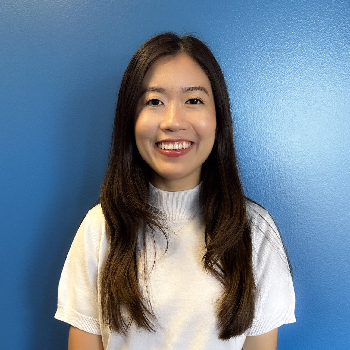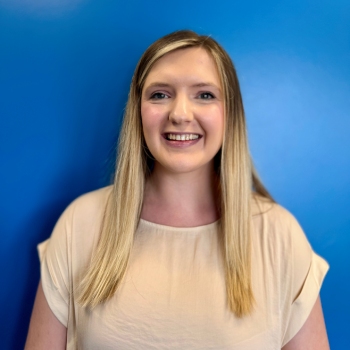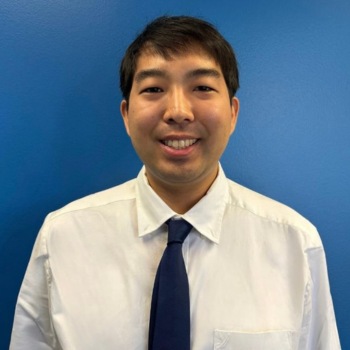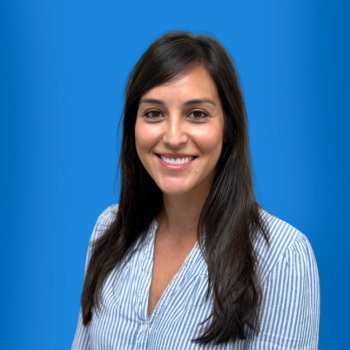Ever wondered what happens during a comprehensive eye exam? Maybe you’re a parent thinking about your child’s eye health, or perhaps you’re someone who hasn’t had an eye check-up in a while.
Either way, understanding the ins and outs of any eye exam can help you make informed decisions about your vision care. A comprehensive eye exam has multiple components to get a clear view of your eye health including:
- Visual Acuity Test
- Refraction Test
- Tonometry
- Retinal Examination
Components of a Comprehensive Eye Exam
A comprehensive eye exam isn’t just about checking how well you can see. It’s a thorough assessment of your overall eye health. Let’s break down the key components.
Vision Testing
First things first, your optometrist will test your vision. You know, that classic “read the smallest line you can see” test? This is called a visual acuity test.
It helps determine if you need glasses or contact lenses and checks for any changes in your vision since your last visit. But it’s not just reading letters on a chart.
The test can also include identifying shapes or colors and reading through a pinhole to check for refractive errors.
Eye Health Evaluation
Next up is the eye health evaluation. Your optometrist will examine the external parts of your eye, including your eyelids, cornea, and conjunctiva.
They might use a slit lamp, which provides a magnified view of the structures in your eye, to look for any abnormalities or signs of disease.
This evaluation can reveal conditions such as dry eye, conjunctivitis, or early signs of more serious conditions like cataracts.
Your optometrist may also check the health of your tear film and the function of your eyelid glands, which are important for maintaining ocular health and comfort.
Refraction Assessment
The refraction assessment is where things get a bit more technical. This test measures how light bends as it passes through your eye.
It helps determine your exact prescription for glasses or contacts. You’ll look through a phoropter and tell your optometrist which lens options make the letters on the eye chart appear clearer.
At Great Hills Eye Care, the optometrist uses advanced digital refraction technology to streamline this part of the exam and fine tune your prescription.
Additionally, this test can help diagnose specific refractive errors such as:
- Myopia (nearsightedness)
- Hyperopia (farsightedness)
- Astigmatism
- Presbyopia
Tonometry (Glaucoma Test)
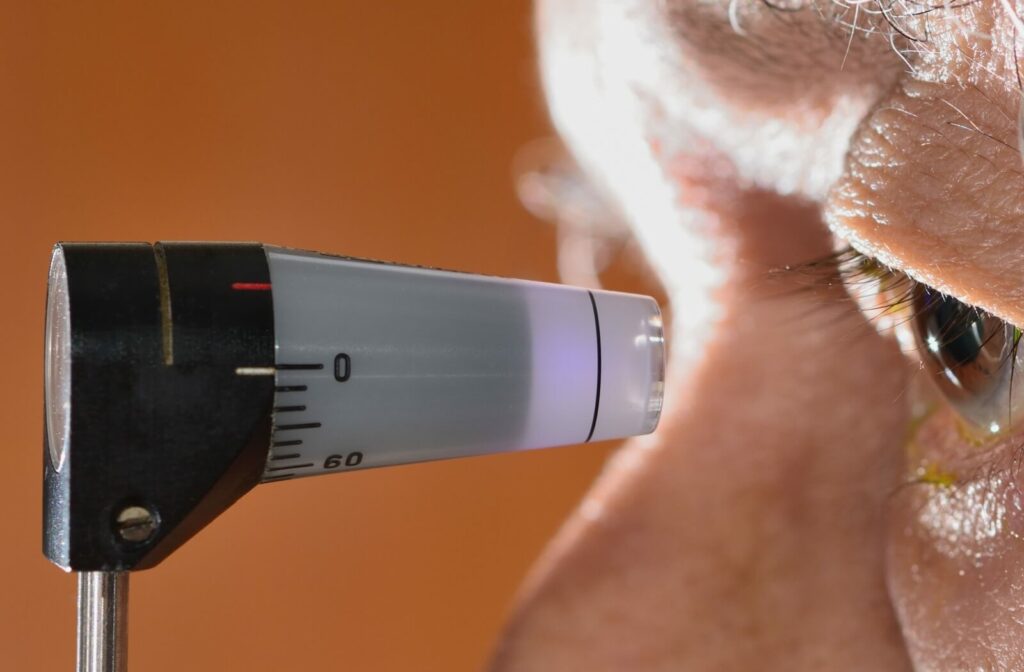
Tonometry measures the pressure inside your eye, known as intraocular pressure (IOP). High IOP can be a sign of glaucoma, a serious eye condition that can lead to vision loss if not treated.
The test is quick, often involving a small puff of air or a gentle touch with a special tool to measure the pressure.
There are different methods of tonometry, such as:
- Applanation tonometry: which involves lightly touching the eye with a special probe
- Non-contact tonometry: which uses a puff of air
Regular tonometry screenings are important for early detection and management of glaucoma, potentially preventing irreversible damage to your vision.
Retinal Examination
The optometrists at Great Hills Eye Care use a highly advanced Optos retinal scanner to evaluate the retina. The Optos gives the optometrist a clear view of your:
- Retina
- Optic Nerve
- Blood Vessels at the back of your eye
The advantage of having an Optomap done is that it does not require dilation eye drops, is quick, painless, and gives the doctor an image that can be analyzed and compared year to year to monitor for changes.
Additional Tests in a Comprehensive Eye Exam
Depending on your age, health history, and risk factors, your optometrist might recommend additional tests. These could include:
- Visual Field Test: This checks for blind spots in your peripheral vision.
- Optical Coherence Tomography (OCT): A non-invasive imaging test that provides detailed pictures of your retina.
- Color Vision Testing: This assesses your ability to distinguish between different colors.
How Often Should You Get a Comprehensive Eye Exam?
How often you need an eye exam depends on several factors, including age, health, and risk of eye problems. Here’s a general guideline:
- Children: Annual check with the child’s pediatrician, and if no issues arise, then starting at 5 years old with the optometrist.
- Teenagers and Adults: Annually – Preventative care is always best and an annual eye exam is a simple and effective way to help you see clearly and keep your eyes healthy!
Preparing for Your Eye Exam
Preparing for an eye exam is simple:
- Bring your glasses or contacts if you wear them.
- Make a list of any eye issues you’ve been experiencing.
- Note any medications you’re taking.
- Be ready to discuss your health history, including any family history of eye conditions.
A comprehensive eye exam is essential for maintaining good vision and eye health. If it’s been a while since your last check-up, why not schedule one with Great Hills Eye Care today? Your eyes will thank you!

